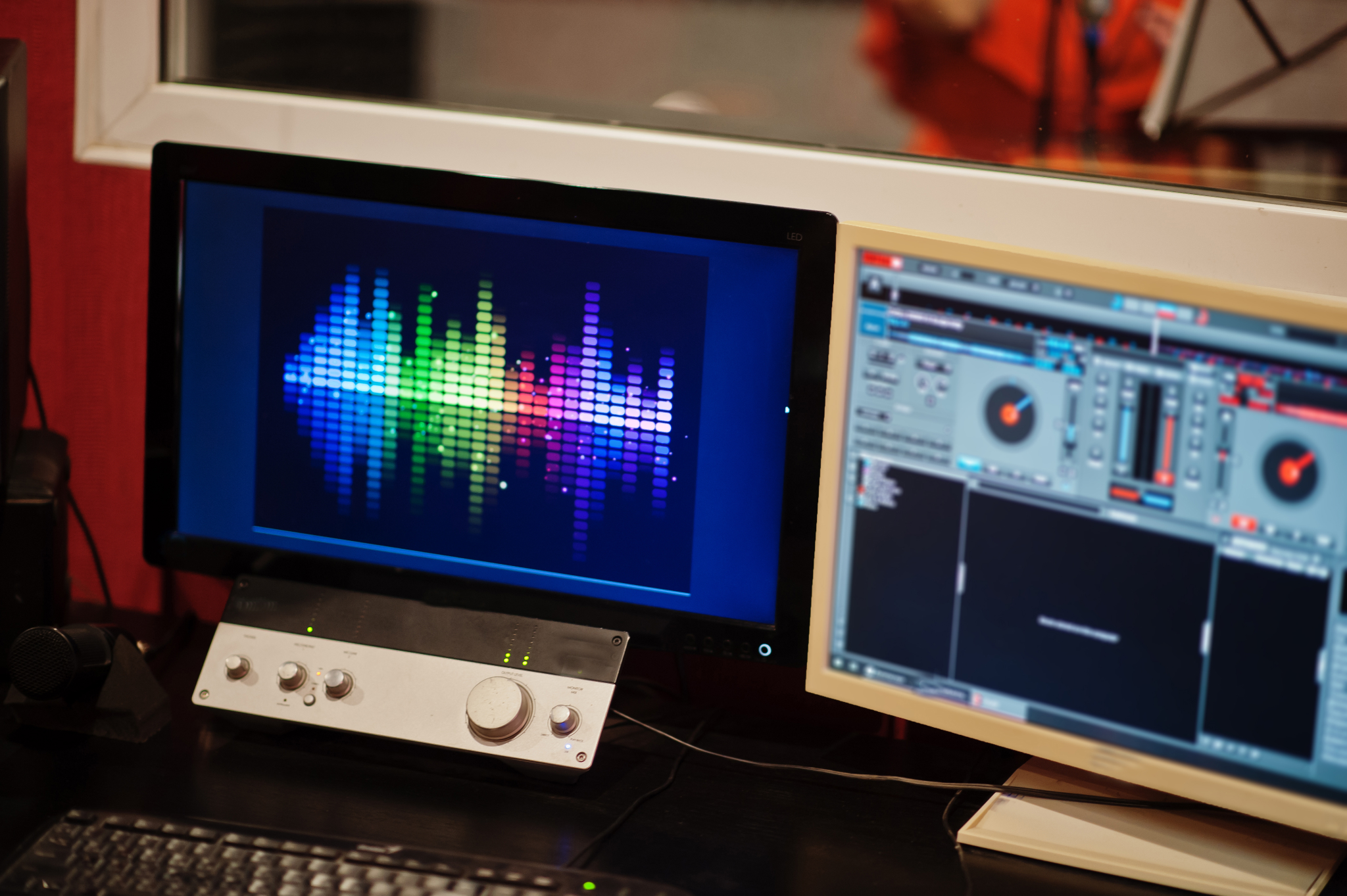There are many different audio file types. If you’re not familiar with them, choosing the right one for your next project can feel overwhelming. Different file types work best for different contexts, and you can’t use them all interchangeably..
Which one should you use? We’ve put together a comprehensive audio file format guide to help you choose.
What Are Audio File Formats?
A file format is a specific way digital files encode information for storage. An audio file format refers to the way an audio file encodes information. There are many types of audio files, each falling under one of two categories: uncompressed and compressed.
Understanding Compressed and Uncompressed Formats
An uncompressed file is a full, unaltered copy of the audio. You can typically hear uncompressed audio on a vinyl record or CD.
The benefit of uncompressed audio is you can copy it without losing data. For example, if you buy a digital album and download the uncompressed audio files onto your computer, you could then burn a CD with those files without losing any audio quality.
The downside to uncompressed audio files is that they’re huge. They take up a lot of storage space, which isn’t good for portable digital music players with limited storage.
That’s why MP3 players and other similar music devices use compressed files. These files are smaller because they’re missing data, meaning they’ve lost some frequencies of the audio from the original recording.
Because of this, compressed music file types aren’t perfect copies. Every time you copy an uncompressed file, you lose information. This means if you continue to make copies of your copy, the quality will rapidly deteriorate.
While this doesn’t matter too much if you just want to listen to a song, it does matter if you’re using audio files for production purposes. That’s why it’s common for broadcast stations to require uncompressed music file types.
Why Is It Important To Choose the Right Format?
There are two key differences between the two digital music formats: storage space and sound quality.
If you’re wanting to download something onto your phone or another digital music player, a compressed audio file is best because it won’t take up as much storage space.
But if you know you’re going to need to copy the audio again and again, you want hi-res, uncompressed audio files. These won’t degrade as you copy them.

What Are the Different Types of Audio File Formats?
You have several different digital formats to choose from within the compressed and uncompressed formats. There are also two kinds of compression formats to be aware of: lossy compression and lossless compression.
Lossy Compression Format
Lossy compression removes inaudible or “irrelevant” audio information from the file. This results in lost sound quality, but the files are smaller. The most common lossy formats are MP3 files and AAC files.
MP3 File Format
MP3, short for MPEG-1 Audio Layer 3, is the standard format for casual listeners to download music. This format works best for digital music because it’s small and well-supported. MP3 is best for easy listening like playing overhead music in a store or restaurant.
While it doesn’t have the best audio quality, the MP3 file format can still sound excellent if the bit-rate is high enough. Bit-rate is how much digital information (called “bytes”) the file processes per second. All of the MP3 tracks on StockMusic have a bit-rate of 320kbps.
AAC File Format
AAC is an alternative to MP3. It stands for Advanced Audio Coding, and while still compressed, it generally sounds more high-quality thanks to advanced coding. Some mobile devices and gaming units use AAC files instead of MP3 files, including iTunes Store.
Lossless Compression Format
Lossless file types are still compressed, but they have higher-quality audio than lossy file types. In lossless compression, you can restore file data to its original form by decompressing the file. Lossless files aren’t as small as lossy file types, but that’s because they aren’t reduced as much.
Two of the most common lossless formats are FLAC files and ALAC files.
FLAC File Format
FLAC stands for Free Lossless Audio Codec. It’s a compression format designed specifically for audio. However, many audio producers don’t use this sophisticated file format often because it usually needs special software to implement. FLAC is a great choice for downloading and storing hi-res albums.
ALAC File Format
ALAC stands for Apple Lossless Audio Codec, and it’s Apple’s version of a lossless file format. The entire Apple Music catalog is encoded using ALAC.
Uncompressed File Formats
As mentioned above, uncompressed files do not have any data removed. Two of the main types of uncompressed audio formats are WAV and AIFF.
WAV File Format
WAV stands for Waveform Audio File. It is a universal type of uncompressed audio file, and the most widely used. WAV files are exact copies of the original audio and hold all the original data.
While large, this file type is ideal for audio production because it suits editing and distributing a track. That’s why WAV is the standard format for CDs.
The downside to the WAV format is it doesn’t have great metadata support for things like track information and album artwork.
AIFF File Format
AIFF, or Audio Interchange File Format, is Apple’s uncompressed file format. It has better metadata support than WAV files and you can use it for the same reasons. However, it generally isn’t as popular, especially among non-Apple device users.
How Do You Know Which Audio Format Is Right for You?
Because there are so many different audio types, the best audio format for you depends on your needs. Consider what you plan to do with the audio file, how much digital storage space you have, and what type of program you’re using with it.
Audio is a crucial part of digital media. The right background music can make or break your film, podcast, or other audio-visual production.
StockMusic has an extensive library of royalty-free music for whatever your needs may be. Explore our catalog today and find the perfect audio for your next project.




